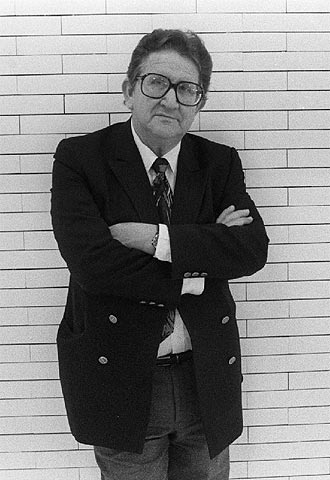4.1.3.4.1 The beginnings of Heberto Padilla (1932 – 2000) in poetry and the Cuban intellectual sphere

Heberto Padilla was born in the city of Artemisa, then part of the province of Pinar del Río, on January 20, 1932. As a teenager, he became interested in the world of letters, which led him to direct two student magazines, “Paladín Colegial” and “Repórter,” in 1945 and 1946. He also lived for some periods in New York, working as a teacher and in journalism.
His collection of poems, “Las rosas audaces,” was published in 1948 in the context of the avalanche of post-Origenist verses, although it did not yet embody a powerful or highly polished poetic sensibility, moving like many contemporary collections of poems in the orbit of Juan Ramón Jiménez and the new shoots of Romanticism.
In 1959 he decided to return to Cuba and joined the world of publications that were then emerging with a new concept of literature. He published texts in “Lunes de Revolución”, the magazines “Unión”, “Casa de las Américas”, “La Gaceta de Cuba” and even in the pages of “Granma”, already overcoming the neo-romantic tone and embracing colloquialism, somewhat at the forefront of his generation.
In 1962, he published “El Justo tiempo humano,” a work in which he explores the colloquial channels of prevailing lyric poetry, but with some insights that distinguish him from the sometimes neutral chorus, although there were other voices that stood out with their own timbres. For this work, he received an honorary award from the Casa de las Américas institution, his lyrical talents already evident.
After having been a correspondent for “Prensa Latina” and “Revolución” in the Soviet Union, founder of UNEAC, International Director of the National Council of Culture and member of the Board of Directors of the Ministry of Foreign Trade of Cuba, he distanced himself and began to oppose the revolutionary process, which can be sensed, without being suspicious, in the verses of “La hora” and would become more explicit in “Fuera del juego”, always with impeccable quality from the lyrical point of view.
Even “Provocations” was published in 1973, before leaving the island, which he did definitively in 1980, from which point on he continued with a work that, while sometimes showing a marked political intention, has not failed to reach high peaks of authenticity and aesthetics, becoming a point of reference for the lyrical discourse of Cuban emigrants in the sociopolitical situation of the last decades of the 20th century.








